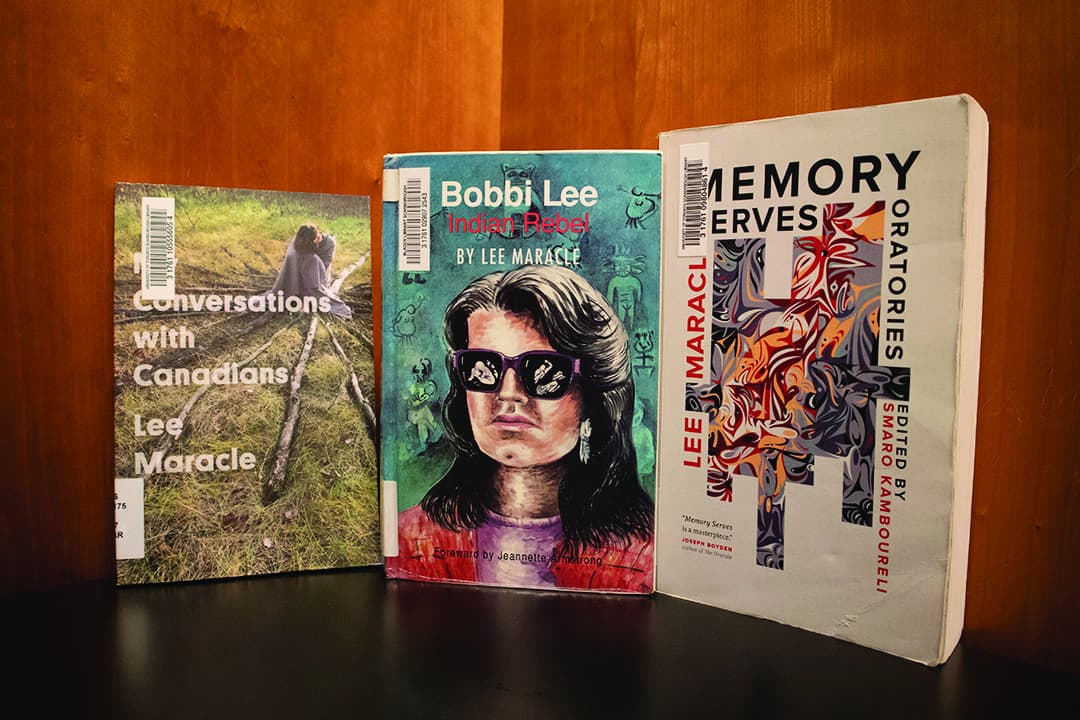Content warning: This article mentions missing and murdered Indigenous women.
As a member of the Stó:lō Nation, author and scholar Lee Maracle dedicated a considerable fragment of her life to being a representative of U of T’s Indigenous communities.
Maracle was an instructor at U of T’s Centre for Indigenous Studies and Transitional Year Programme. She was also an instructor in the Aboriginal Studies program and was a visiting professor in the Women and Gender Studies program. Prior to her appointment as the First Nations House’s traditional teacher in 2008, she was its inaugural writer-in-residence. In all of these roles, Maracle’s knowledge instilled in her students a remembrance of the past, an understanding of the present, and an influential perspective on the future.
Aside from teaching students, Maracle was also an active community member. She was a member of U of T’s Elders’ Circle, a group responsible for supporting initiatives, strategies, and programming to advance access, retention, and degree completion for Indigenous students. She was also a former traditional teacher-in-residence at Indigenous Student Services, a department that offers culturally relevant services to Indigenous students. These roles allowed Maracle to offer students support and guidance, which encouraged their academic success and personal development.
Alongside the Indigenous Studies Students Union, Maracle was also a prominent figure in the year-long organization of U of T’s first powwow in over two decades. The powwow, held on March 11, 2017, featured performances from Indigenous dancers, tables of handcrafted beadwork, leather goods and quilts made by Indigenous artisans, and honoured missing and murdered Indigenous women.
Maracle also fought for Indigenous representation and recognition on campus. She was one of two Indigenous Elders who advised U of T’s Truth and Reconciliation Steering Committee in the creation of their final report. Released in 2017, the report outlined 34 Calls to Action for U of T to implement to better serve its Indigenous communities. The report suggested changes to better improve the following areas at U of T: Indigenous spaces, Indigenous faculty and staff, Indigenous curriculum, Indigenous research ethics and community relationships, Indigenous students and co-curricular education, and implementing institutional leadership.
In the same year that the report was released, Maracle was honoured with a Bonham Centre Award for her contributions to the advancement of teaching issues involving sexual identification. Maracle also educated people through the several fiction and nonfiction books that she published, such as Ravensong, which explores the struggle of an urban Native community devastated by the 1950s influenza outbreak, and Bobbi Lee Indian Rebel, which tells the story of an Indigenous woman raised in North America who “finds her strength despite the forces that challenge and oppress her.” Maracle was recognized as one of the most influential Indigenous voices in Canada’s literary community by being named an Officer of the Order of Canada in 2018.
The impact of Maracle’s writings and teachings has not been lost since her death on November 11, 2021. When she took the Proust Questionnaire on CBC Radio in 2016, Maracle echoed this idea, saying, “Words can’t leave the atmosphere. They bounce around, they go around the earth and hit the same spot again.”
Maracle’s contributions will continue to be vital to the growth of our university for years to come.
Indigenous people in need of support can call:
- Indigenous student services at U of T’s First Nations House at 416-978-8227, or email at [email protected],
- Indigenous student support specialist at UTM’s Indigenous Centre at 905-828-5437,
- Anishanawbe Health Toronto at 416-360-0486,
- Za-geh-do-win Information Clearinghouse at 1-800-669-2538,
- Indian Residential School Crisis Line at 1-866-925-4419 (available 24 hours a day),
- Hope for Wellness Helpline at 1-855-242-3310,
Talk4Healing Help Line at 1-855-554-4325.


